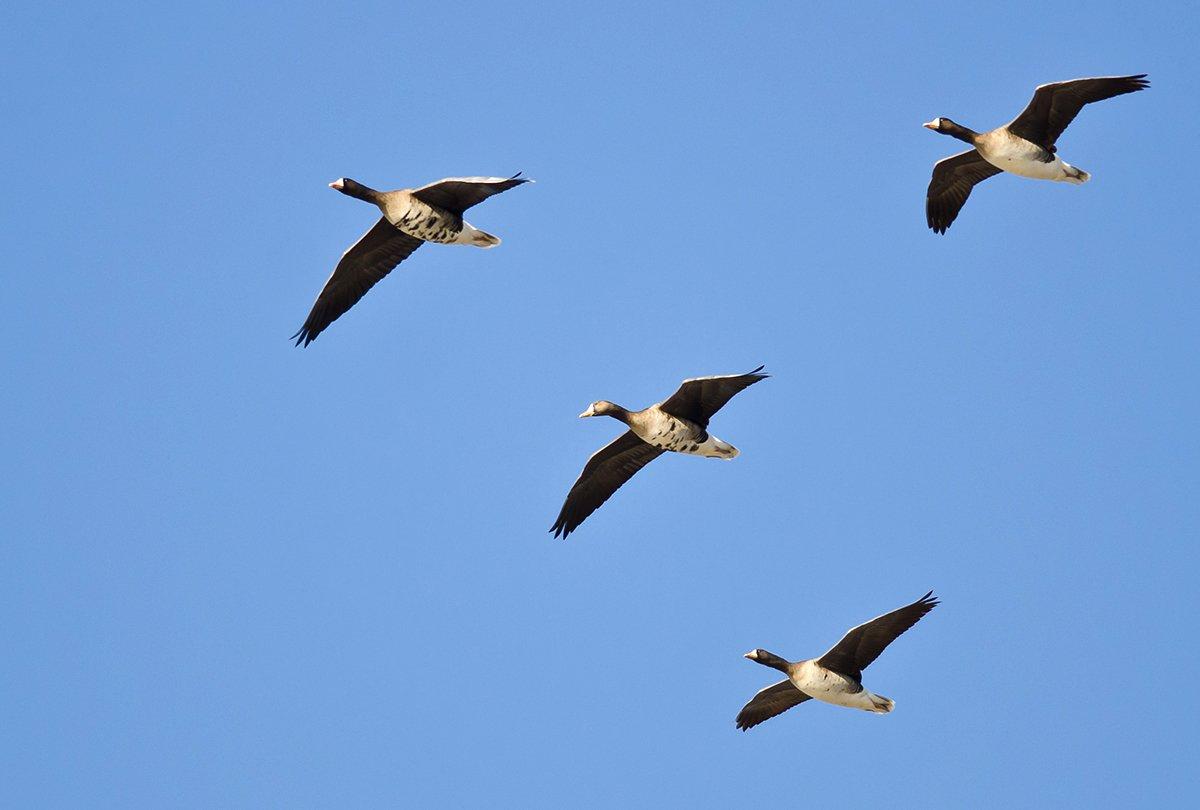Whitefronts fill in the gaps when duck won't fly
Global warming, shifting weather trends, the moon being out of alignment with Orion's belt and his pants falling off — I don't care what you believe is causing this crazy weather. Bottom line, it's been too dang hot for December.
Duck hunters tolerate warm weather during early teal season, but it's downright unwelcome after Thanksgiving. If you add cloud cover and subtract wind, you have the algorithmic equivalent of a waterfowler's nightmare. That's been the way of the world lately, at least in my neck of the woods — stale local ducks, migrators still hanging up north, and my wool long johns continue to feed the local moth population.
With the rain, clouds and heat playing a dominant role in our weather forecasts, teal have been making up most our meager limits. Of course, that majority has been about as heavy-handed as the last presidential election, so we don't have anything to brag about.
A typical morning usually goes like this:
Check the blind for snakes.
Sweat.
See ducks.
Call to ducks.
Watch ducks ignore calls and fly away.
What is the definition of insanity again?
During the past couple of days, however, the specks (white-fronted or specklebelly geese, for those of you who might not know) have been showing up. Not in big numbers, but enough to make things interesting. The first group we saw this season came in low over the tree line at about 9 a.m., just as we were about to call it a hunt and head to Waffle House. It's amazing at such times how difficult it is to put your hands on the correct one of three calls on your lanyard. That morning, there were three goose calls between four of us in the blind, and nobody could muster a quick grip. Finally, someone started calling, and the specks turned and, without much hesitation, dropped in to inspect the three specklebelly decoys placed a short distance from our duck spread. Everyone shot well, and the trio found their way to the strap with the help of some eager retrievers.
So, during the past few days, the duck hunting has been abominably slow, but we've had just enough specks working to make for some dandy mornings. I'm not a world-class specklebelly caller or hunter. Neither are my friends, and I'm fairly certain they're OK with me saying that. Nonetheless, we can blow a call reasonably well and usually shoot just well enough to add a few specklebellies to the strap. That's enough to keep us going day after day until the greenheads, pintails and rest of the lot show up.
I wish they'd hurry up.
Click here for more Realtree waterfowl hunting content. And check us out on Facebook.








